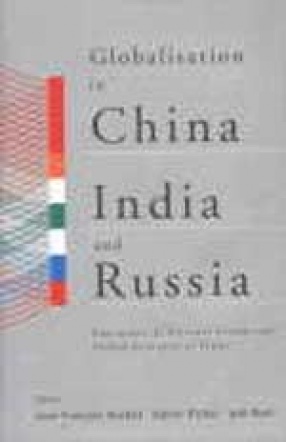
Showing all 5 books



On paper. State Electricity Boards in India, are supposed to provide electricity to a billion people across the country. In reality, however, what they provide to the consumers are poor quality power and endless power cuts. Besides, they are forever incurring losses and are thus a burden on State exchequers. We are told that this is only due to their 'politicization' and 'inefficiency'. But is that the whole truth?. This book brings together ten specialists. With ...

Beyond ideologies, beyond hiccups and cycles of reforms, privatisation of State Electricity Boards of India (SEBs), just alike their public reform, are structurally stalled. The book argues, the emphasis on ownership is misleading, and needs being articulated more subtly to a look at organisational structure of SEBs. An in-depth enquiry in SEBs shows how privatisation is a one-sided game that has no real takers as long as SEBs remain organisations in which all ...

A non-starter for years, reforms of the power sector in India has finally started. In relation to the country’s growth and general economic buoyancy, the power sector has not only been slow with its reforms, but is also impeding the furthering and fostering of general reforms. In that respect, delays in reform not only bear a cost in terms of budgetary and human resource, but also in terms of credibility and opportunity. Every delay worsens the situation and ...

The State Electricity Boards present huge potential for daily change in the lives of a billion-strong Indian population. Often described as nearly impossible to reform, SEBs offer huge untapped potential for higher technological efficiency, that in turn could mean reliable electricity for day to day life, reduced bills for the users and the public exchequer, higher environmental sustainability. For this potential to appear clearly in the public debate, the ...

No study of globalisation is possible, nor is it thinkable, without referring to China, India, and Russia, that is to say, without an analysis of their firms and including them in the global network of firms. The three countries under study had socialist economies and are now going through a process of transition towards a market economy with various degrees of success and, more importantly, using different methods as far as the relationship between the state and ...
